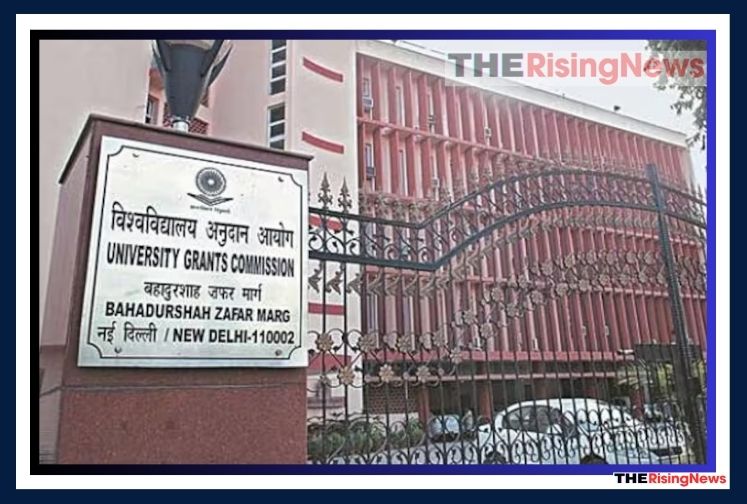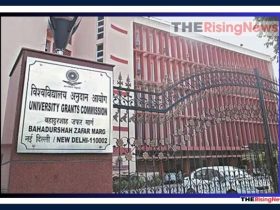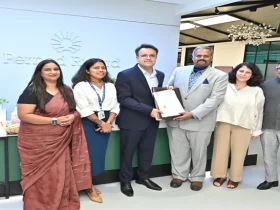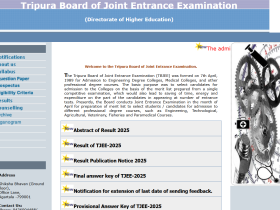NEW DELHI, July 15, 2024: The University Grants Commission (UGC) has issued a directive urging higher education institutions to ban the sale of unhealthy foods on campus and promote healthier alternatives in response to rising obesity, diabetes, and other non-communicable diseases (NCDs). This move follows a shocking report from the Indian Council of Medical Research (ICMR) indicating that one in four Indians is either overweight, diabetic, or pre-diabetic.
The UGC Ban Unhealthy Food action highlights the urgent need for healthier dietary habits among students and staff in universities across India. The commission has referenced previous advisories from November 2016 and August 2018, reinforcing the necessity for institutions to adopt and enforce stricter food policies. The latest ICMR study, conducted between 2020 and 2023, underscores the severity of the public health crisis, prompting the UGC to renew its efforts in combating poor nutrition on campuses.
UGC Bans Unhealthy Food in All Universities Key Points:
- ICMR Report Findings: Alarming statistics reveal that one in four Indians is either overweight, diabetic, or pre-diabetic.
- UGC Directive: Calls for higher education institutions to ban unhealthy food sales and promote healthier options in canteens.
- Previous Advisories: Reinforcement of guidelines issued in 2016 and 2018 to curb the consumption of junk food.
- NAPI’s Role: The National Advocacy in Public Interest (NAPI) supports the UGC’s directive, advocating for better nutritional choices in educational institutions.
UGC Bans Unhealthy Food in All Universities After ICMR Study :
The ICMR study paints a grim picture of the nation’s health, with escalating cases of obesity and diabetes. In response, the UGC has issued a letter to universities, emphasizing the critical role they play in shaping the dietary habits of young adults. This letter urges institutions to eliminate the sale of unhealthy foods on their premises and replace them with nutritious alternatives.
Dr. Rajesh Kumar, a senior official at UGC, stated, “Educational institutions have a responsibility to foster a healthy environment for their students. By eliminating unhealthy food options, we can help reduce the prevalence of lifestyle diseases and promote better health outcomes.”
Detailed Discussion on NAPI’s Involvement:
The National Advocacy in Public Interest (NAPI), a nutrition think tank consisting of experts from various disciplines, has expressed firm endorsement for the UGC’s directive. NAPI has been actively advocating for improved food policies in educational institutions, emphasizing the importance of a comprehensive approach to addressing Non-Communicable Diseases (NCDs). Their diverse expertise includes areas such as epidemiology, human nutrition, community nutrition, pediatrics, medical education, administration, social work, and management. Dr. Anjali Mehta, a spokesperson for NAPI, stated, “Our objective is to witness a significant decrease in the prevalence of obesity and diabetes among young individuals.”
Further Elaboration on UGC’s Previous Advisories:
The University Grants Commission (UGC) has previously provided recommendations in November 2016 and August 2018, emphasizing the compliance of higher education institutions with regulations prohibiting the sale of unhealthy foods on campus. In earlier directives, the UGC advised colleges to undertake proactive measures aimed at enhancing student well-being and reducing the intake of unhealthy foods. These initiatives encompassed educating students on the detrimental effects of junk food, monitoring body mass index (BMI), and fostering awareness of waist-hip ratio.
UGC Ban Unhealthy Food with Statistical Data from ICMR Report:
The ICMR study conducted between 2020 and 2023 revealed that 25% of the Indian population is either overweight, diabetic, or pre-diabetic. The study highlighted the significant rise in these health issues over recent years, emphasizing the urgent need for comprehensive health policies and interventions.
Student Health:
The renewed focus on healthy eating in universities is expected to have far-reaching implications for public health. By fostering better nutritional habits early on, educational institutions can play a pivotal role in reversing the trend of rising NCDs. This initiative is also aligned with the National Multi-Sectoral Action Plan (NMAP) for the Prevention and Control of Common NCDs (2017-2022), which aims to address these health challenges through comprehensive policy measures.
Dr. Mehta added, “It’s not just about removing junk food; it’s about educating students on the benefits of a balanced diet and the risks associated with poor eating habits.”
The UGC’s directive represents a critical step towards improving public health outcomes among young adults. By prioritizing healthy eating in educational institutions, India can hope to curb the growing epidemic of obesity and diabetes. For more information on the UGC Ban Unhealthy Food initiatives and detailed guidelines, visit the official UGC website.
Universities are encouraged to review and implement the UGC’s guidelines immediately to create a healthier campus environment. For further details, institutions can access resources and support materials on the UGC website.
















